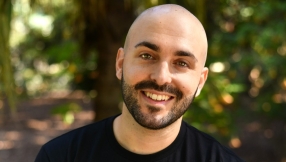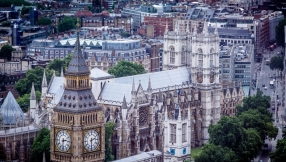Church Leaders to Meet Europe's Political Powers to Call for Debt Relief in Africa
Five senior Catholic Church leaders commence the journey to Europe in order to push for debt cancellation for some of the world's poorest nations. During the European visit they will meet with leaders of Germany, England and France, as announced by the Secretary for Communication at the Zambia Episcopal Conference (ZEC), Fr. Paul Samasumo.
Archbishops Medardo Mazombwe of Lusaka, John Onaiyekan of Nigeria and Berhaneyessuys Souraphiel of Ethiopia joined Cardinal Telesphore Toppo of India and Cardinal Oscar Rodrigues of Honduras to form the envoy appealing to European leaders. The European premiers who will receive this cry for help are German Chancellor Gerhard Schroeder, British Prime Minister Tony Blair, French President Jacques Chirac and European Commission's President Jose Manuel Barroso, and will be asked to cancel the debt of the poor nations.
The journey is the part of a campaign promoting greater global justice and is scheduled before the G8 meeting in Scotland in July.
Archbishop Mazombwe stressed the importance of this type of initiative since poor countries of Africa, such as Zambia needs a new start. Cancellation of debt is an important step that should be taken. Archbishop Mazombwe said: "Without such a strong step, we will never reach the Millennium Development Goals (MDGs) set for 2015."
The Millennium Developments Goals, adopted by the UN Millennium Summit, the largest gathering of world leaders in 2000, are to meet again in 2015. Goals have been set up to solve problems and eventually eradicate poverty, hunger and disease.
During the upcoming summit of G8, the development of Africa will be the priority, declared the chair country, Britain.
However, the way to provide money on time to achieve the Millennium development Goals is still uncertain. A proposed International Finance Facility (IFF) requires support from 70 countries, however, its efficiency depends on the support of Germany and Italy. These countries have limited their support and blocked Tony Blair's plan to secure an historic deal for Africa in near future.
The United States also have not as of yet changed their aid programme under its Millennium Challenge Account to support the new targets set up by the IFF initiative. Among the G7 countries (excluding Russia that is not expected to be a significant donor for African aid) which will currently not join the IFF are the United States, Canada and Japan.
Therefore, there is a huge funding shortfall of over US$6 billions. Stephen Lewis, the U.N. special envoy for HIV/AIDS in Africa recently expressed that a "big breakthrough" is needed from the United States: "Nobody is closer to George Bush than Tony Blair. And if Bush is to move again dramatically, it will be Blair who has to push him," Lewis added.
The division of Europe over the issue may be obstacle for Blair to persuade Bush to change United States' political affairs. However, if united and if a clearly better aid deal could be proposed then Blair will gain political and moral authority to pressure the US, Canada and Japan to provide aid.













